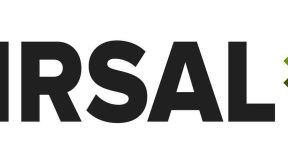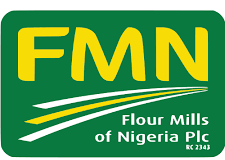Ultimatum To Crash Prices
OpenLife Nigeria reports that the Federal Competition and Consumer Protection Commission, FCCPC, has given a month’s notice to traders and other market stakeholders involved in exploitative pricing to crash the prices of goods.
The Executive Vice-Chairman of the FCCPC, Mr. Tunji Bello, gave the order at a one-day stakeholders’ engagement on exploitative pricing yesterday in Abuja.
According to Bello, the commission will begin enforcement after the expiration of the notice.
He said the meeting was to address the growing trend of unreasonable pricing of consumer goods and services and unwholesome practices of market associations.
Bello said: “The issue of critical national importance of the day is the growing trend of unreasonable pricing of consumer goods and services across the country, and the unwholesome practice of market associations engaged in price fixing.
‘’As a responsive organization, we have carried out discreet market surveys extensively across the country in the past few weeks. Our findings are quite disturbing, to put it mildly.
“Therefore, our gathering here today (yesterday) is to underscore the gravity of the situation and the urgency of the need to work together to check this unwholesome development.
“As a statutory body whose mandate is to cater to consumer rights, we cannot allow this unhealthy trend to continue.
“To be sure, we quite recognize that an unfavourable exchange rate has negatively impacted the cost of production in local currency. However, the margin in pricing goods and services is unreasonable or excessive in a few cases.
‘’We have observed, for instance, that the margin in the prices of imported goods are very disproportionate in many cases; and in the case of locally produced goods, excessively inflated.
“This is an untenable situation, particularly in the retail segment, where we have identified patterns of price fixing perpetrated by some market associations, price gouging, and other anti-consumer practices.
Widespread price fixing
‘’For proper understanding, price fixing refers to an unholy agreement between competing businesses to set prices at a certain level. This can be done either explicitly or implicitly, and it prevents healthy competition that is otherwise expected to drive prices down and improve quality.
‘’Price gouging on the other hand occurs when sellers significantly increase the price of goods or services during a crisis or a period of economic challenge. This practice takes undue advantage of consumers.
‘’To illustrate, let me give you some glimpses of our findings. For instance, our check just two days ago at a popular supermarket chain in Texas, United States, revealed that a fruit blender called Ninja, is displayed on the shelf at $89 (roughly N140,000), just two days ago.
‘’Meanwhile, the same product was displayed at a popular supermarket on Victoria Island in Lagos for N944,999 on the same day and at the same hour. This represents more than 500 per cent inflation of the cost.
‘’Interestingly, when our undercover officer visited the same supermarket two weeks earlier, this same blender was on display with the price tag of N750,000.
‘’The question then arises: what is the basis for this arbitrary hike in the price of the blender, compared to the United States? What business principle can justify this level of profiteering?
‘’Perhaps, I should cite a few more of the unpleasant discoveries we made during our investigation. In some notable supermarkets surveyed discreetly in Abuja, Kano, Port Harcourt and Lagos, we also found that prices were arbitrarily jerked up from time to time without any justifiable reason.
‘’In one particular big supermarket in Abuja, for instance, consumers were being charged N2,600 for an imported toilet soap at the payment point as the price tag was not displayed as earlier mandated by FCCPC.
“The same toilet soap was displayed for sale at N1,950 at a popular supermarket in Lekki, Lagos, the same day. That already constitutes a double offence.
“From our findings, the penchant to hike prices arbitrarily is also common among sellers of food items and transport operators. When the foodstuff sellers were engaged, their common response was that the cost of transportation had increased.
‘’But how justifiable is it for the tomato seller to double the price of a basket of tomatoes simply because they paid higher transport fare?
“Whereas the price of the same basket of tomatoes was far cheaper at another market within the same jurisdiction surveyed by our field officers. Now, the question: did the seller who sold at a lower price not also pay the transport fare?
How price-fixing happens
‘’In a typical foodstuff market environment, this is how price fixing happens. A trailer-load of yam tubers arrives at Wuse market in Abuja from, say, Benue State. Rather than allow free trade, the market cartel then inserts themselves between the produce farmers and the retailers.
‘’They buy in large quantities from the producer at cheap rate and, in turn, sell to market retailers at much higher price. And the retailers, in turn, sell to consumers at cut-throat rate.
‘’Such price fixing is no longer acceptable and FCCPC will, henceforth, crack down on those involved in this profiteering scheme.
‘’In the case of public transportation, again how justifiable is it for the bus driver to double their fare simply because they paid slightly higher for petrol? Of course, this will only result in a spiral of arbitrary hike in the prices of other services.
‘’The landlord who pays more for transport will probably seek to double their rent as a survival strategy. The school-owner asked to pay higher rent will also likely increase fees they charge students. That way, we all end up being losers with the cost of living becoming unbearable for everyone.
‘’In view of the current situation in Nigeria, let me, however, be very unequivocal. Price gouging and price fixing are not only unethical, but patently illegal under the FCCPA.
“As such, the FCCPC has the will and the capacity to invoke the full weight of the law against those found culpable of exploiting consumers.
“However, our approach today is not punitive or adversarial. To start with, we intentionally resolved to withhold the names of the aforementioned errant supermarkets, believing that, after this exposition, they will turn a new leaf and adjust their prices downward to a reasonable level.
‘’This approach is borne out of our conviction that dialogue and collaboration are equally important tools in fostering a fair marketplace.
“We believe that through constructive engagement, we can establish a framework for reasonable pricing that benefits all stakeholders, particularly the consumers who are the backbone of our economy.
‘’Please note that this new initiative by the FCCPC aligns with the renewed hope agenda of President Bola Tinubu, which prioritises the welfare of the Nigerian people in all economic activities.
“We are determined to uphold this agenda by ensuring that market practices do not exacerbate the economic challenges faced by our citizens at this time.
‘’Good enough, as a sensitive leader who cares for the welfare of the citizens, President Bola Tinubu has already graciously taken some pragmatic steps to ease food security in the country, including the provision of fertilizer to farmers as well as removal of tariffs on the importation of selected staple food items.
‘’It is only just and reasonable that distributors and traders pass down the gains to Nigerian consumers by reducing prices in the coming weeks.
‘’As we move forward, I therefore call on all stakeholders to embrace the spirit of patriotism and cooperation. Let us talk to ourselves. The law empowers the commission to impose heavy fine for breaches and also prosecute offenders which could lead to jail terms.
‘’For instance, Section 107 (4a.) of FCCPA clearly states: “Where the undertaking is a natural person, is liable on conviction to imprisonment for a term not exceeding three years or to payment of a fine not exceeding N10,000,000.00 (N10m) or to both the fine and imprisonment.
‘’Section 107 (4b.) also states that, “Where the undertaking is a body corporate, is liable on conviction to a fine not exceeding 10% of its turnover in the preceding business year.
“But in the spirit of democracy, we are first exploring the option of dialogue. It is also in this spirit that we are giving a moratorium of one month (that is, September) before the commission will start firm enforcement. Let us work together to create a marketplace that is not only competitive but also fair and just.
‘’The FCCPC is committed to continuing these dialogues, monitoring compliance, and taking decisive action where necessary.’’







